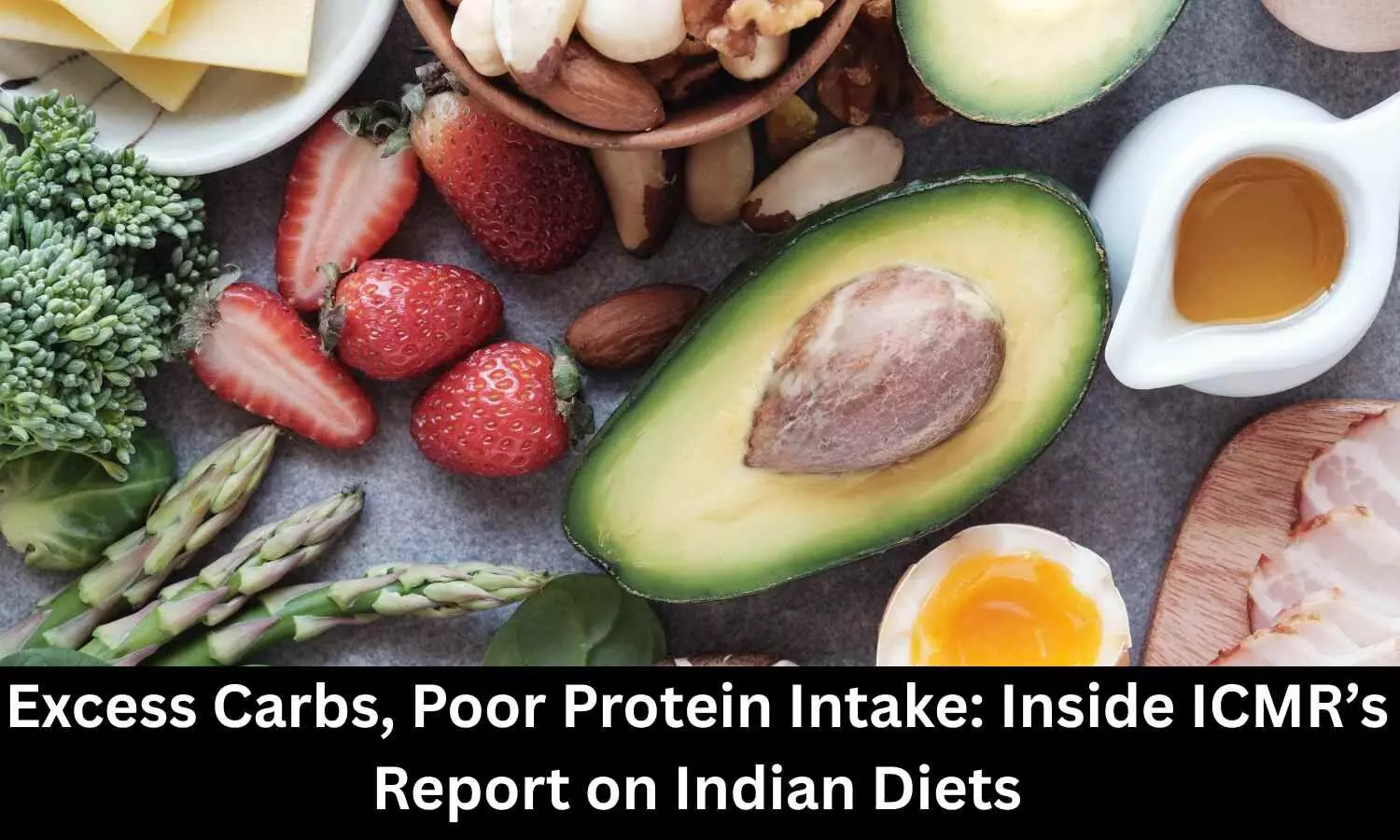Excess Carbs, Poor Protein Intake: Inside ICMR’s Study on Indian Diets
- byDoctor News Daily Team
- 13 October, 2025
- 0 Comments
- 0 Mins

A new nationwide study by the Indian Council of Medical Research (ICMR), published in Nature Medicine, reveals that the average Indian diet is alarmingly high in carbohydrates, making up 62% of daily calories. This excessive carb intake, mainly from white rice, milled grains, and added sugars, is directly linked to increased risks of diabetes, prediabetes, and obesity. Protein intake is low at only 12%, predominantly plant-based. Saturated fats exceed safe limits in many regions, while healthy fats remain insufficient. The study highlights regional dietary patterns—rice dominates in the South, East, and Northeast, wheat in North and Central India, and millets in select states. Notably, simply switching grains does not reduce diabetes risk, emphasizing the need to reduce total carbohydrate consumption. Experts recommend replacing some carbs with protein-rich foods like eggs, paneer, pulses, and lean meats, alongside incorporating healthy fats from nuts, seeds, and fatty fish. REFERENCE:Anjana, R.M., Sudha, V., Abirami, K. et al. Dietary profiles and associated metabolic risk factors in India from the ICMR–INDIAB survey-21. Nat Med (2025). https://doi.org/10.1038/s41591-025-03949-4
Disclaimer: This website is designed for healthcare professionals and serves solely for informational purposes.
The content provided should not be interpreted as medical advice, diagnosis, treatment recommendations, prescriptions, or endorsements of specific medical practices. It is not a replacement for professional medical consultation or the expertise of a licensed healthcare provider.
Given the ever-evolving nature of medical science, we strive to keep our information accurate and up to date. However, we do not guarantee the completeness or accuracy of the content.
If you come across any inconsistencies, please reach out to us at
admin@doctornewsdaily.com.
We do not support or endorse medical opinions, treatments, or recommendations that contradict the advice of qualified healthcare professionals.
By using this website, you agree to our
Terms of Use,
Privacy Policy, and
Advertisement Policy.
For further details, please review our
Full Disclaimer.
Recent News
Scientists discover a hidden antibiotic 100 times...
- 31 October, 2025
Gut microbes may convert fiber into extra calories...
- 31 October, 2025
Who's eligible for faculty appointment? NMC clarif...
- 31 October, 2025
AMU JN Medical College launches code blue emergenc...
- 31 October, 2025
Daily Newsletter
Get all the top stories from Blogs to keep track.


0 Comments
Post a comment
No comments yet. Be the first to comment!